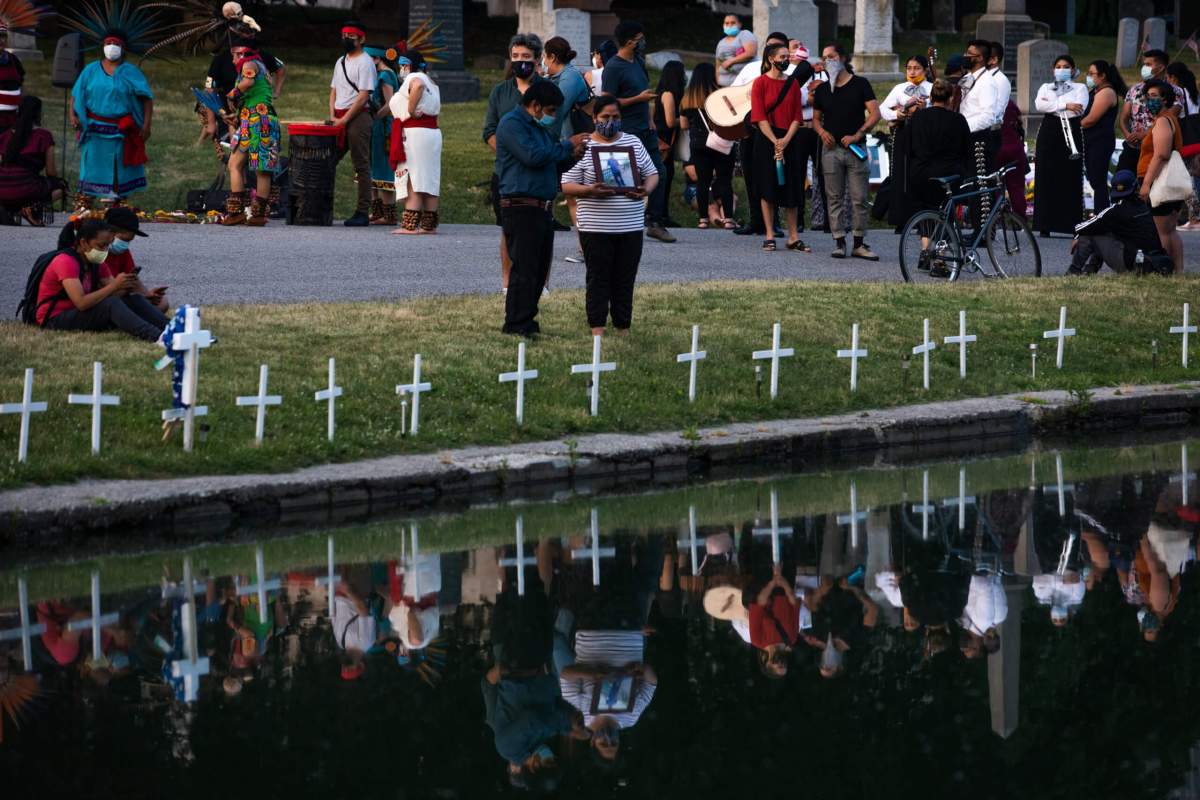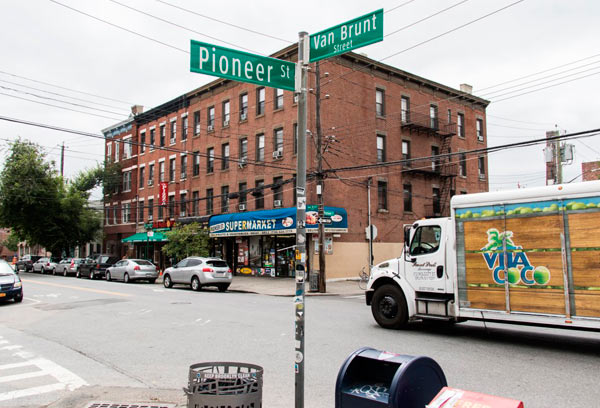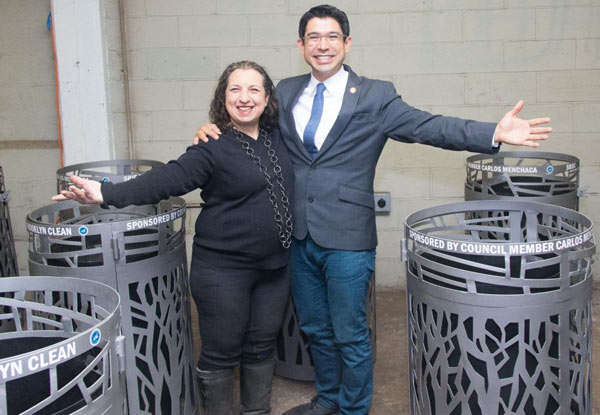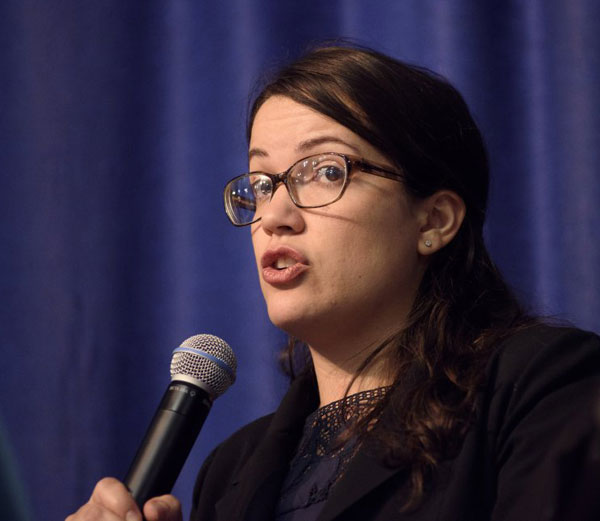With many families struggling to obtain closure after the loss of loved ones during the COVID-19 pandemic, one Sunset Park organization offered over 100 members of the Latin American immigrant community the opportunity to say their final goodbyes at a July 2 mass vigil at Green-Wood Cemetery.
The remembrance was organized by the Mixteca Organization as a way to help the Hispanic community, which was disproportionately affected by the coronavirus pandemic, grieve together. Family members lit candles, created a memorial in remembrance of their loved ones and said prayers together to honor those who have died from COVID-19.
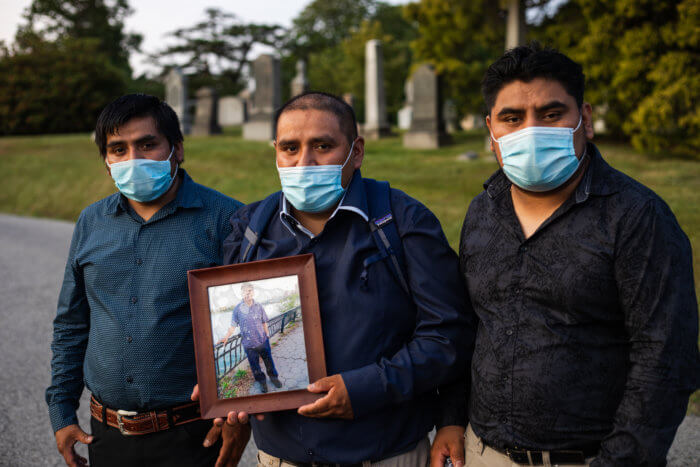
Luis Reyes Tapia attended the vigil with the ashes of his friend — 29-year-old Claudio Ortega Maldonado — in tow. Maldonado died from the coronavirus on April 22, and didn’t have any family in New York, Tapia said.
“He asked me, ‘If something happens to me, can I count on you?’ I told him he could count on me,” he said, adding that, from Green-Wood, Maldonado’s ashes were to be sent back to his native Guerrero, Mexico. “I’m happy now because I’ll send him to his family. Let’s hope he gets there and his soul can rest in his homeland.”
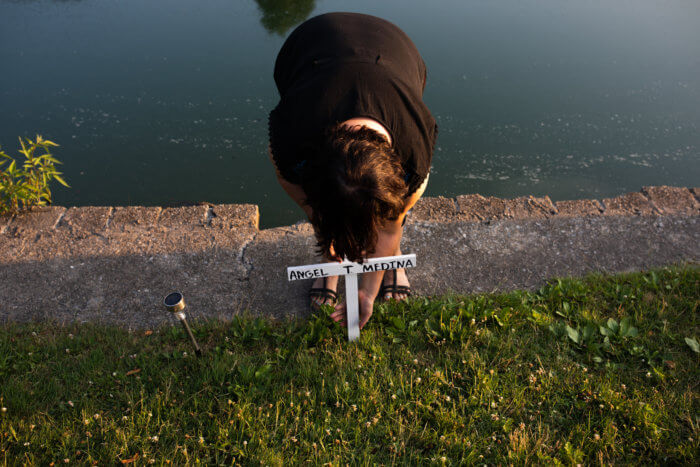
For Reyes, and other attendees, Mixteca’s memorial service was the only chance he’s had to wake his friend.
“I loved him like a brother and he loved me like a brother,” Reyes said. “This is the first time we have the opportunity to give him the last goodbye.”
For Mixteca, helping immigrant families get through the pandemic is not limited to assisting them in mourning. The Greenwood Heights community-based organization has been supporting undocumented immigrants in the area for years — and they’ve since expanded their coverage to service families as far as Connecticut and New Jersey because of the increasingly dire situation brought on by the pandemic.
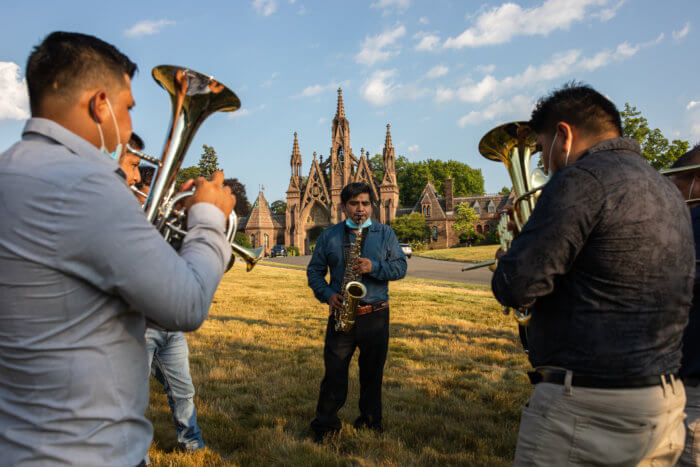
Brooklyn’s undocumented immigrants have seen higher death rates from the novel coronavirus than the general population, and affected families have had a hard time navigating the process for burials and cremations — something organizers at Mixteca have said is compounded by a lack of government support.
“We get a lot of heavy stories every day,” Janet Perez, program director of the Mixteca Organization, told Brooklyn Paper in late May. “Even the process of claiming their loved one, they haven’t even been able to do it because of the language access barrier.”
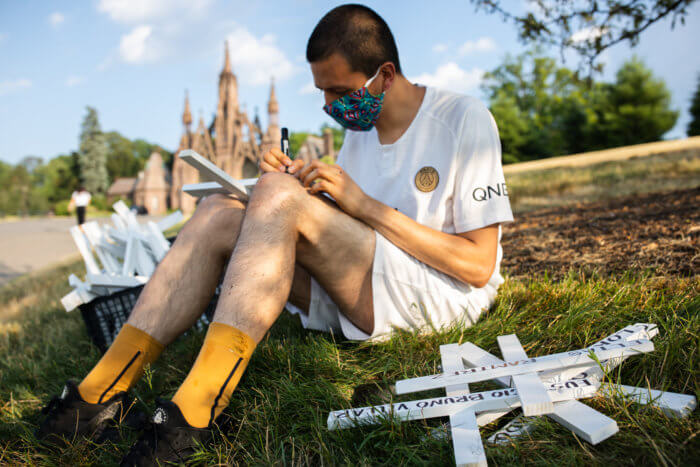
Transporting loved ones back to their homelands has also been a difficult process for many families, Councilman Carlos Menchaca told Brooklyn Paper.
Norma Contreras, who attended the Green-Wood vigil to say goodbye to her husband, said she felt alone in her mourning until Mixteca stepped in.
“It has been very hard because the truth is that when you are in this country, you are alone and there was no one who supported me in the beginning,” said Contreras, whose husband, Jose Luis Valencia, died from complications caused by the novel coronavirus on April 11. His body has not yet made it back home to Mexico.
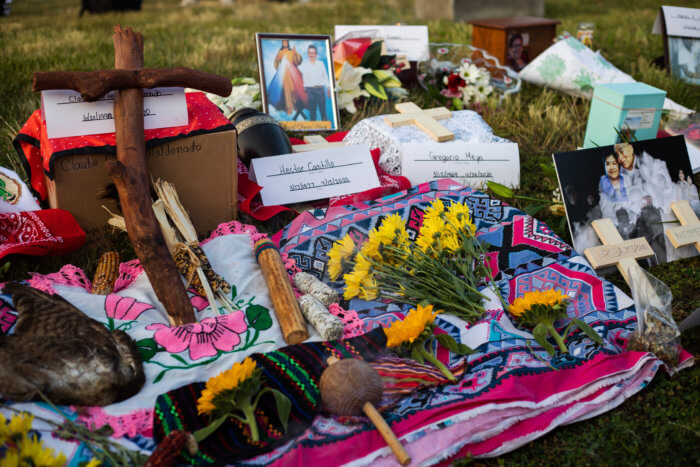
For Contreras, Mixteca’s memorial also served as an end to a difficult chapter in her life.
“It’s not easy, maybe because we can’t accept his departure because of all that is happening but, little by little, it will be possible,” she said.
Additional reporting by Paul Frangipane and Jessica Parks


